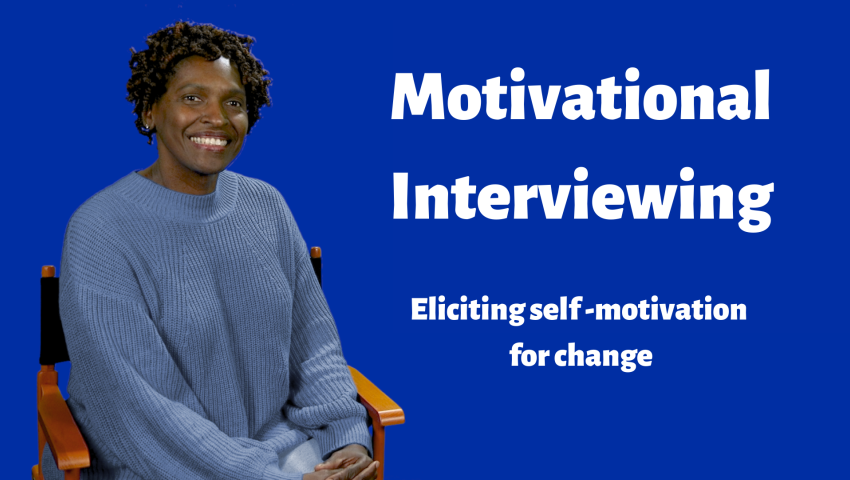Dr. Williams: Any clinical situation where ambivalence is high, desire is low, motivation is low, and confidence is low. So that could be in the case of tobacco, the individual uses tobacco and the clinician is trying to have a conversation with the individual about changing their tobacco use behaviors. The individual may be ambivalent because tobacco helps them, and helps them when they’re stressed, or it helps them calm down and so their ambivalent. They know the information about the ill health effects, but they still are ambivalent about changing their behavior. Or, again in the case of tobacco, they may have tried before so their confidence is low because they perhaps have tried unsuccessfully before; And their motivation could also be low because again they desire it; And then their desire may be low because they have some pleasure from using tobacco. So it’s most effective in the clinical situation where those four factors exist.
